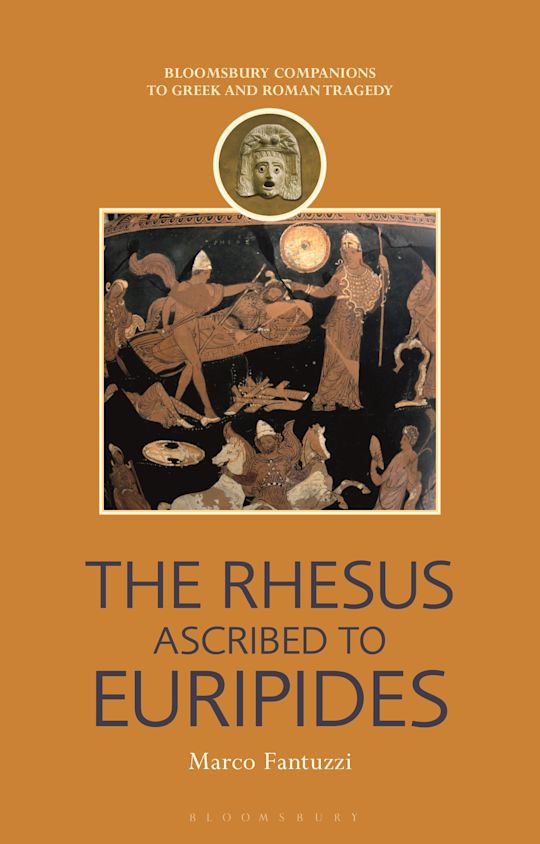You must sign in to add this item to your wishlist. Please sign in or create an account
The Rhesus came down to us among the plays of Euripides, and was acknowledged as Euripidean by Aristotle. However, there is much debate as to its authorship and it may have been the work of a rival dramatist or 4th-century actors who heavily re-worked or interpolated Euripides' original play with this title.
This is the first accessible introduction to the play, analysing its themes, performance and context for students of Euripides and other Greek drama. The Rhesus provides invaluable evidence about 4th-century production and performance of tragedy, which is otherwise known only from very few and short fragments from other lost plays. Stylistic and historical analysis together show what being a "post-classical" tragedy could mean – the play's composition probably took place precisely in the age when the canon of the three great tragedians was instituted and the plays of Aeschylus, Sophocles, and Euripides became the incomparable "classical" texts of tragedy.
The Rhesus is a splendid example of what "coming after" can mean for literary works: it is situated after, and thus reflects, both Homer and also canonical 5th-century tragedy. Little is written about 4th-century poetry, although its relevance in the incubation of Hellenistic poetry is a topos of literary and historical studies. By putting the Rhesus more solidly on the chronological map, stylistic and historical analysis proves that it can shed light on this tantalizing age.

| Published | 05 Mar 2026 |
|---|---|
| Format | Ebook (PDF) |
| Edition | 1st |
| Extent | 176 |
| ISBN | 9781350004023 |
| Imprint | Bloomsbury Academic |
| Series | Companions to Greek and Roman Tragedy |
| Publisher | Bloomsbury Publishing |
Your School account is not valid for the India site. You have been logged out of your account.
You are on the India site. Would you like to go to the United States site?
Error message.

